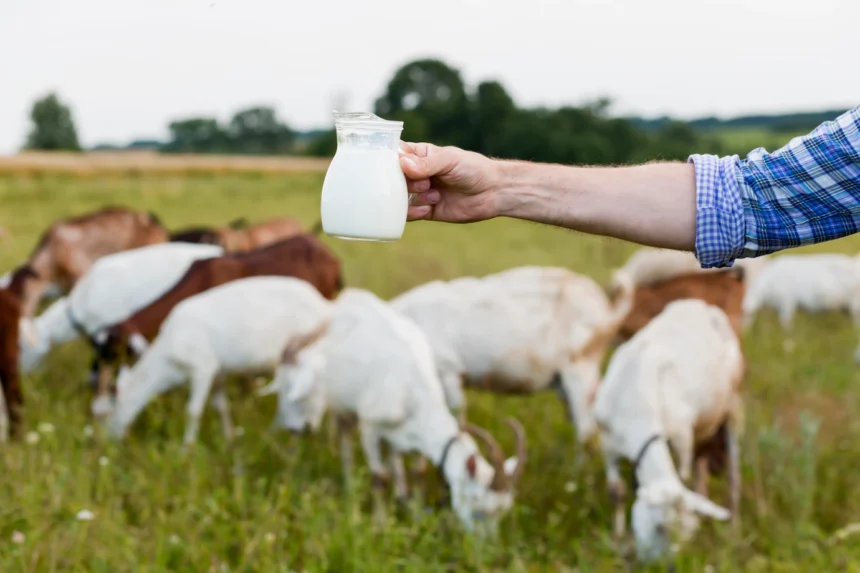Starting a goat milk business in South Africa can be an exciting and potentially profitable venture. Here are ten important things you should know before embarking on this journey:
- Market Research: Conduct thorough market research to assess the demand for goat milk products in South Africa. Identify potential customers, competitors, and distribution channels. This will help you understand the market dynamics and make informed decisions.
- Goat Breeds: Familiarize yourself with the different goat breeds suitable for milk production. Common dairy goat breeds in South Africa include Saanen, Toggenburg, Alpine, and British Alpine. Each breed has unique characteristics that can impact milk production and quality.
- Infrastructure and Facilities: Adequate infrastructure is crucial for a successful goat milk business. Ensure you have sufficient land, housing facilities, milking parlors, and storage areas. Proper fencing is essential to protect the goats from predators and prevent them from straying.
- Licensing and Regulations: Research the legal requirements for operating a goat milk business in South Africa. Obtain the necessary licenses and permits, such as food safety certifications, health permits, and compliance with animal welfare regulations. Adhering to these regulations will help you build a reputable and compliant business.
- Feeding and Nutrition: Proper nutrition plays a vital role in milk production. Develop a feeding program that meets the nutritional requirements of your goats. It may include a combination of pasture, hay, grains, and specialized goat feed. Consult with a veterinarian or animal nutritionist for expert advice.
- Milking and Milk Handling: Learn the proper techniques for milking goats and handling their milk. Maintain strict hygiene practices during milking, such as cleaning udders, using sterile milking equipment, and properly storing the milk. This will ensure the quality and safety of your goat milk products.
- Milk Processing: Decide on the type of goat milk products you want to produce, such as pasteurized milk, cheese, yogurt, or ice cream. Understand the processing requirements and invest in the necessary equipment, such as pasteurizers, cheese-making supplies, and packaging materials.
- Marketing and Branding: Develop a marketing strategy to promote your goat milk products. Consider your target audience, pricing, packaging, and distribution channels. Build a strong brand identity that emphasizes the quality, uniqueness, and health benefits of your products.
- Financial Planning: Create a detailed business plan that includes projected expenses, revenues, and profit margins. Consider the costs of acquiring and maintaining the goats, infrastructure, equipment, feed, marketing, and staffing. Secure adequate funding or loans to support your business operations.
- Networking and Education: Join relevant industry associations, attend workshops, and connect with experienced goat milk farmers. Networking can provide valuable insights, support, and potential business opportunities. Continuously educate yourself about goat farming and milk production through books, online resources, and training programs.
Remember, starting and running a goat milk business requires dedication, hard work, and ongoing learning. By being well-prepared and informed, you increase your chances of building a successful enterprise in South Africa’s growing goat milk industry.
Join 'Farmers Mag' WhatsApp Channel
Get the latest Farming news and tips delivered straight to your WhatsApp
CLICK HERE TO JOIN






